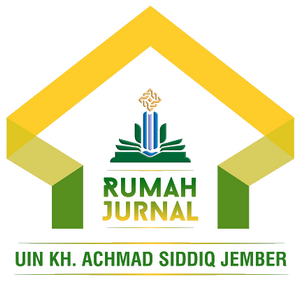Significance of Sufism in Environmental Sustainability: Eco-Sufism Movement in Islamic Boarding School
DOI:
https://doi.org/10.35719/ijibs.v2i2.49As one of the branches of spirituality in Islam, Sufism emphasizes simplicity, wisdom, and harmony with nature. The Eco-Sufism movement is an approach that integrates Sufi spiritual values with environmental awareness. This study examines the significance of Sufism in environmental sustainability through a case study at the Kanzun Najah Islamic Boarding School, Batu Malang City. This Islamic boarding school has adopted Eco-Sufism-based practices, such as organic farming, utilization of renewable energy, and conservation of natural resources, all inspired by Sufism teachings. Through a qualitative approach, this study analyzes how Sufi teachings on the relationship between humans and nature are translated into concrete actions to support environmental sustainability. The results show that applying Sufi values in environmental management positively impacts the socio-ecological welfare of the Islamic boarding school community while inspiring similar movements in other areas. This study also proposes that Eco-Sufism can comprehensively solve global environmental challenges by strengthening the spiritual connection between humans and nature.
References
Abbasi, Tasneem, and S. A. Abbasi. "Reducing the global environmental impact of livestock production: the minilivestock option." Journal of Cleaner Production 112 (2016): 1754-1766.
Ahmad, Maghfur. "Three sufi communities guarding the earth: A case study of mitigation and adaptation to climate change in Indonesia." Al-Jami'ah: Journal of Islamic Studies 57.2 (2019): 359-396.
Akter, Taslima. Resource Exploitation And Environmental Crisis: An Ethical Analysis. Diss. University Of Dhaka, 2024.
Al-Ghazali, Ahmad. "The Role of Islamic Mysticism in Fostering Environmental Ethics: Case Studies in Indonesia." Islamic Studies Journal 45, no. 2 (2022): 134–150.
Al-Hussaini, Muhammad. "Environmental Education in Islamic Boarding Schools: A Case Study of Eco-Sufism Integration." Journal of Islamic Education 30, no. 3 (2022): 200–218.
Aziz, Ahmad. "Environmental Degradation and Religious Responses: A Global Perspective." Environmental and Religious Studies 19, no. 4 (2021): 412–430.
Baird, David. Zeitgeist incarnate: a theological interpretation of postapocalyptic zombie fiction. Diss. University of St Andrews, 2019.
Boivin, Nicole L., et al. "Ecological consequences of human niche construction: Examining long-term anthropogenic shaping of global species distributions." Proceedings of the National Academy of Sciences 113.23 (2016): 6388-6396.
Braun, Virginia, and Victoria Clarke. "Thematic Analysis: A Reflexive Approach." Qualitative Research in Psychology 18, no. 3 (2021): 389–407.
Creswell, John W., and Cheryl N. Poth. Qualitative Inquiry and Research Design: Choosing Among Five Approaches. 4th ed. Thousand Oaks, CA: SAGE Publications, 2018.
Eck, Diana L. Encountering God: A Spiritual Journey from Bozeman to Banaras. Boston: Beacon Press, 2020.
Fauzi, Muhammad, and Hamzah Yusuf. "Harmony and Sustainability in Sufi Teachings: A Philosophical Approach." Journal of Sufi Studies 12, no. 1 (2019): 15–30.
Flick, Uwe. An Introduction to Qualitative Research. 6th ed. London: SAGE Publications, 2018.
Göktaş, Vahit, and Saeyd Rashed Hasan Chowdury. "The role of sustainable development goals on environmental sustainability: a discourse from an Islamic perspective." Avrasya Sosyal Ve Ekonomi Araştırmaları Dergisi 6.5 (2019): 279-295.
Gufron, Ahmad, and Zainal Hambali. "Eco-Sufism: Spirituality as a Framework for Environmental Ethics." International Journal of Islamic Environmental Studies 25, no. 2 (2022): 89–105.
Hamid, Muhammad. "Rethinking Capitalism: Sufi Principles and Environmental Sustainability." Journal of Islamic Economics 35, no. 1 (2023): 62–80.
Hamim, Thoat, Muhamad Muslih, and Eki Furqon. "Transboundary Haze Pollution in Indonesia and Malaysia in the Perspective of Islamic Law and International Environmental Law." UNIFIKASI: Jurnal Ilmu Hukum 10.2 (2023): 88-105.
Haq, Abdul. "Air Pollution and Deforestation: Challenges and Solutions Through Eco-Sufism." Journal of Environmental Awareness 7, no. 3 (2021): 54–70.
Haryanto, Budi. "Climate change and urban air pollution health impacts in Indonesia." In Climate change and air pollution: The impact on human health in developed and developing countries (2018): 215-239.
Huda, Mokhammad Miftakhul, and Muhammad Nabil Musyarrof. “Ma’had Aly: Integration of Islamic Universities and Islamic Boarding Schools”. IJIBS 1, no. 2 (July 24, 2023): 135–156. Accessed December 31, 2024. https://ijibs.uinkhas.ac.id/index.php/ijibs/article/view/24.
Imamah, Siti. "Asceticism and Environmental Balance: Lessons from Sufi Philosophy." Islamic Thought Review 28, no. 3 (2017): 98–115.
Irawan, Dedi. "Spirituality and Environmental Ethics: The Role of Eco-Sufism in Modern Environmentalism." Environmental Philosophy Journal 18, no. 4 (2022): 75–92.
Khalid, Fazlun M. "Exploring Environmental Ethics in Islam: Insights from the Qur'an and the Practice of Prophet Muhammad." In The Wiley Blackwell companion to religion and ecology (2017): 130-145.
Mangunjaya, Fachruddin. "Integrating Environmental Sustainability into Islamic Education Curricula: Lessons from Indonesia." Indonesian Journal of Environmental Studies 14, no. 2 (2022): 102–118.
Merriam, Sharan B. Qualitative Research: A Guide to Design and Implementation. 4th ed. San Francisco: Jossey-Bass, 2019.
Moghaddam, Reza, and Fatemeh Omidi. "Sufism and Environmental Harmony: Bridging Spirituality and Ecology." Journal of Persian Environmental Studies 22, no. 1 (2022): 10–25.
Mori, Akira S. "Ecosystem management based on natural disturbances: hierarchical context and non‐equilibrium paradigm." Journal of Applied Ecology 48.2 (2011): 280-292.
Muhamad, Asmawati, Abdul Halim Syihab, and Abdul Halim Ibrahim. "Preserving human–nature’s interaction for sustainability: Quran and Sunnah perspective." Science and Engineering Ethics 26.2 (2020): 1053-1066.
Muhtifah, Lailial, et al. "The theology of Islamic moderation education in Singkawang, Indonesia: The city of tolerance." HTS Teologiese Studies/Theological Studies 77.4 (2021): 6552.
Nasr, Seyyed Hossein. "Man and Nature: A Sufi Perspective on Environmental Responsibility." Journal of Islamic and Environmental Ethics 15, no. 2 (2022): 45–60.
Ni'am, Syamsun. "The debate of orthodox Sufism and philosophical Sufism: The study of Maqāmāt in the Sirāj al-Ṭālibīn of Shaykh Iḥsān Jampes." Al-Jami'ah: Journal of Islamic Studies 58.1 (2020): 1-34.
Patton, Michael Q. Qualitative Research and Evaluation Methods. 4th ed. Thousand Oaks, CA: SAGE Publications, 2015.
Purwanto, Erwin. "The Concept of Khalifah in Islamic Teachings and Its Implications for Environmental Awareness." Journal of Islamic Ethics 20, no. 1 (2022): 34–49.
Pye, Christian B. Tahqiq, human perfection, and sovereignty: Ibn al-'Arabi and early-modern Islamic empire. Diss. 2023.
Quddus, Muhammad. "Industrialization and Consumerism: Catalysts for Environmental Degradation." Global Environmental Review 28, no. 3 (2020): 125–140.
Radkau, Joachim. "Religion and environmentalism." In A Companion to Global Environmental History (2012): 493-512.
Rahman, Faisal, and Nurul Osman. "Sufi Ethics and Stewardship: An Islamic Approach to Environmental Challenges." Journal of Islamic Philosophy 10, no. 4 (2021): 67–81.
Ranieri, John J. "Defending victims, practicing restraint: god-consciousness and the use of force in the Qur’an." Religions 13.2 (2022): 124.
Sari, Annisa R. "Eco-Sufism in Practice: Environmental Sustainability in Islamic Boarding Schools." Journal of Islamic Environmental Studies 10, no. 1 (2022): 45–60.
Shah, Muhammad Maroof, and Musarrat Jabeen. "Ibn Arabi Passions Truth to Dialogue." Iqbal Review/Iqbaliyat 59.2, 4 (2018): 89-142.
Sheth, Jagdish N., Nirmal K. Sethia, and Shanthi Srinivas. "Mindful consumption: A customer-centric approach to sustainability." Journal of the Academy of Marketing Science 39 (2011): 21-39.
Sklair, Leslie. Capitalism and its alternatives. Vol. 65. Oxford: Oxford University Press, 2002.
Taylor, Bron, Gretel Van Wieren, and Bernard Zaleha. "The greening of religion hypothesis (part two): Assessing the data from Lynn White, Jr, to Pope Francis." Journal for the Study of Religion, Nature and Culture 10.3 (2016): 306-378.
Tchurovsky, Dimitar. "Mankind at the Crossroads: Civilizational Shift or Self-destruction." Cadmus 3.6 (2019): 43-66.
Tedeschi, Richard G., and Lawrence G. Calhoun. "Time of change? The spiritual challenges of bereavement and loss." OMEGA-Journal of Death and Dying 53.1 (2006): 105-116.
Vetlesen, Arne Johan. The denial of nature: Environmental philosophy in the era of global capitalism. Routledge, 2015
Downloads
Published
Issue
Section
License
Copyright (c) 2024 Fikri Taufiqur Rohman Fikri, Zainal Fanani, Danar Kusuma, Mohammad Fuyudun Niam Imam, Muh. Hafidh Ubaidillah

This work is licensed under a Creative Commons Attribution-NonCommercial 4.0 International License.
License
1. Author’s Warranties
The author warrants that the article is original, written by stated author/s, has not been published before, contains no unlawful statements, does not infringe the rights of others, is subject to copyright that is vested exclusively in the author and free of any third party rights, and that any necessary written permissions to quote from other sources have been obtained by the author(s).
2. Miscellaneous
IJIBS will publish the article (or have it published) in the journal if its editorial process is successfully completed and IJIBS or its sublicensee has become obligated to publish it. IJIBS may conform the article to a style of punctuation, spelling, capitalization, and usage that it deems appropriate.

















 IJIBS licensed under Creative Commons Attribution-NonCommercial 4.0 International License.
IJIBS licensed under Creative Commons Attribution-NonCommercial 4.0 International License.